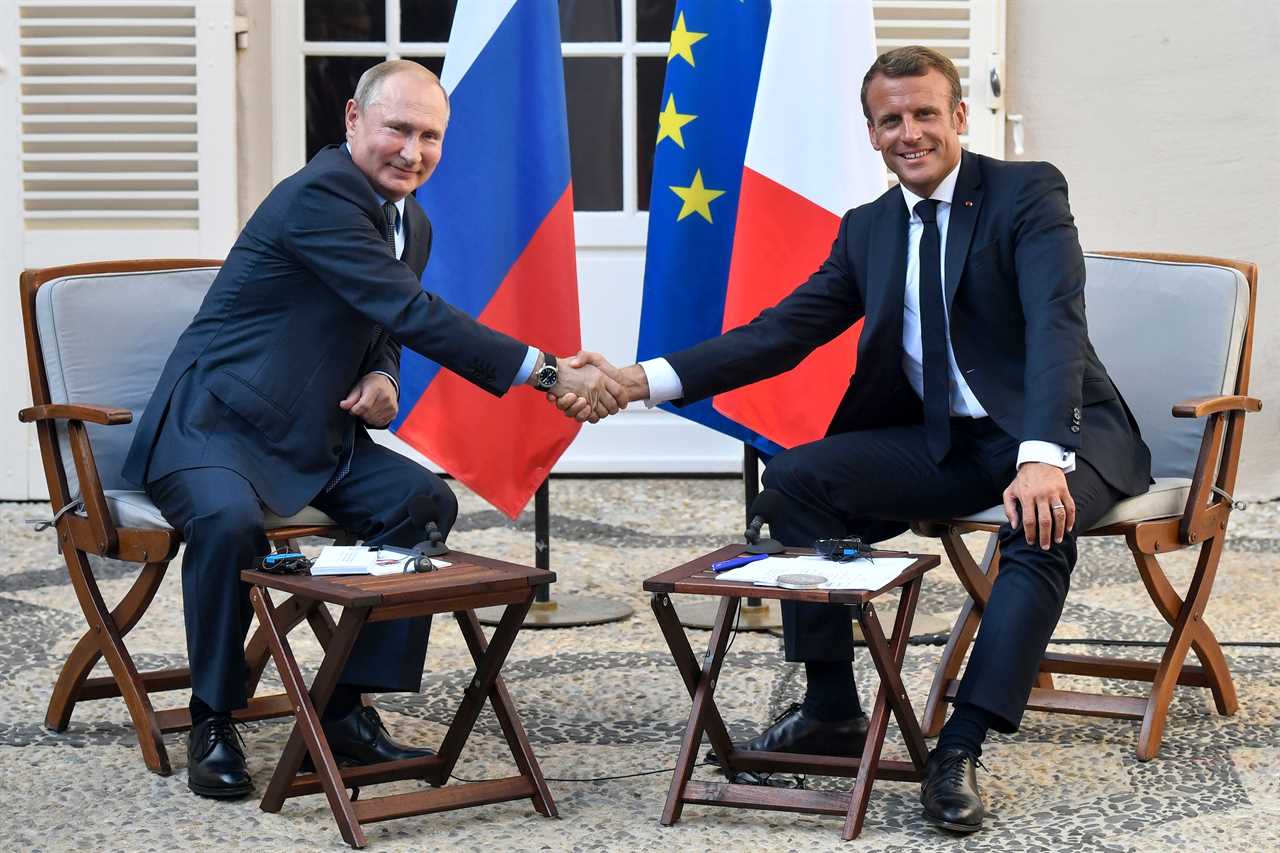
PARIS — France’s two-stage presidential election begins Sunday, and it’s passing strange that no matter the outcome, Vladimir Putin will win. Incumbent President Emmanuel Macron is leading the polls, at slightly more than 28 percent, and it seems all but inevitable that he will compete in the second round against Marine Le Pen, who is polling just above 22 percent. He drubbed her in the 2017 election and will probably do it twice.
Both are known for their overtures to Putin, but the case of Macron is particularly curious. His five-year term has seen ever-more outrageous Russian aggression. Indeed, his introduction to leadership on the international stage was Russia’s attack on the 2017 French election campaign, when directly before the final round, their hackers leaked two gigabytes of data stolen, allegedly, from Macron’s campaign and purportedly replete with evidence of his improprieties, sexual and financial. This was the culmination of a months-long Russian disinformation campaign in favor of Le Pen and against Macron. The leaks fizzled because Macron’s campaign, having seen what happened to Hillary Clinton, had prepared, seeding ludicrous documents among the leaked ones to muddy the waters. (The hackers, too, were culturally unfamiliar with France; they labored, for example, under the impression that French voters would be dissuaded, not encouraged, by revelations of Macron’s peculiar sexual tastes. The leaks interested the American right more than they did the French electorate.)
Such an introduction to Russia’s malevolence might subdue a president’s enthusiasm for Moscow, especially given its contemporaneous attacks on other Western democracies, incessant cyberattacks, poisonings, assassinations on Western soil, and, of course, war crimes in Ukraine and Syria. But Macron has spent the past five years trying to draw Russia into his embrace, evidence be damned. Germany apart, the rest of Europe — the Baltic states and Ukraine, in particular — have viewed Macron as a preening, Putin-loving nincompoop at best, an outright menace to European security and NATO’s integrity at worst.
But this isn’t the strangest part. Macron, at least, comes by his Russophilia honestly. Le Pen, the far-right candidate, is literally on Moscow’s payroll, and lest the libel editor send this back to me with the words, “We can’t say this!” — oh yes, we can","link":{"target":"NEW","attributes":[],"url":"https://www.bbc.com/news/world-europe-39478066","_id":"00000180-0e1f-d43e-ad82-ce7fc7930000","_type":"33ac701a-72c1-316a-a3a5-13918cf384df"},"_id":"00000180-0e1f-d43e-ad82-ce7fc7930001","_type":"02ec1f82-5e56-3b8c-af6e-6fc7c8772266"}">oh yes, we can. She has given Putin his money’s worth, too, hewing faithfully and proudly to the Kremlin line. “I admire Vladimir Putin,” she told the Russian journal Kommersant, noting that Europe’s economic crisis offered “an opportunity to turn our back to the U.S. and turn toward Russia.” She called for lifting the “completely stupid” EU sanctions against Russia because there had been “no invasion” of Crimea, which had “always been Russian.” Echoing Moscow, she described Ukraine’s (freely elected) government as the product of “a coup d’état.” When the EU, the U.S., and the UN called the 2014 referendum in Crimea illegitimate, she retorted that its legitimacy was “indisputable.” (Later that day, a Kremlin official sent her an SMS asking “how to thank” her.)
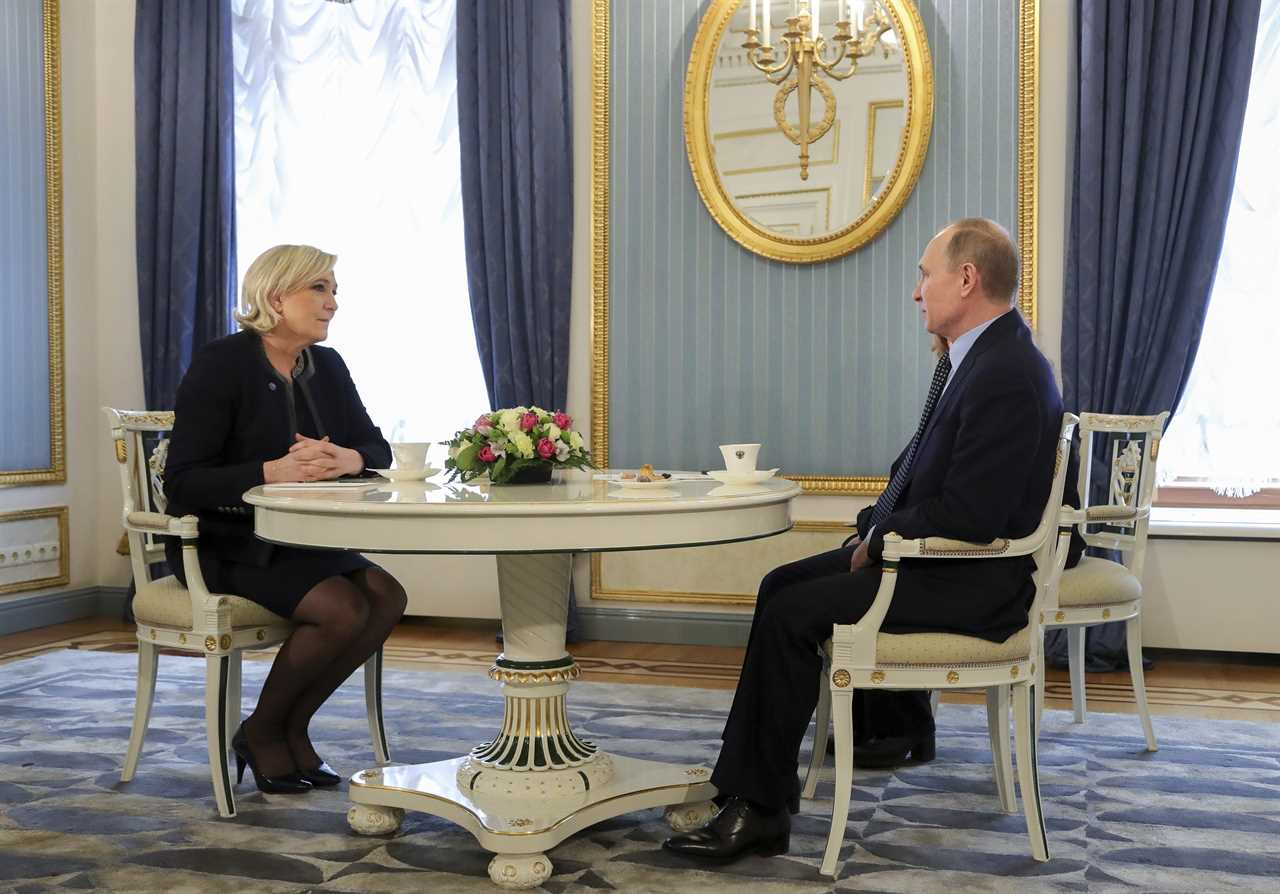
Accidents happen in democracies. It’s possible Macron or Le Pen could lose. So consider the candidates nipping at their ankles. Support for the far-left showboat Jean-Luc Mélenchon has risen to 15 percent; flash-in-the-pan Eric Zemmour — a candidate so far to the right he makes Le Pen look pink — has sunk to 11 percent. Pulling up the rear, at 9.5 percent, is the forgettable Valérie Pécresse, the first woman to lead France’s traditional center-right Les Républicains, and with numbers like those, probably the last. At least she is polling ahead of Anne Hidalgo, the candidate of the center-left Parti Socialiste; to judge from Hidalgo’s numbers, her mother might vote for her. Realistically, then, only five candidates have a shot — albeit a long one.
And all five would suit Moscow just fine.
In a normal election, Macron’s opponents would seize upon this opportunity to portray Macron as soft on Russia. But since they’ve all proposed to be softer, none have brought up the subject. Zemmour, like Le Pen, is literally a paid stooge of Moscow. Mélenchon is a stranger case. We have no evidence that he has dipped his beak, so we’re forced to conclude that he toes Moscow’s line because he agrees with it.
Even the bland Valérie Pécresse has avoided attacking Macron for his Russophile agenda, and no wonder; as a teenager, she attended communist youth camps in the USSR — “I took propaganda classes, I sang The International in Russian,” she explained proudly to Le Figaro in 2016, emphasizing her passion for Tolstoy. Asked recently what she would say to Putin, she replied, on prime time, in fluent Russian. But she didn’t take the occasion to say she would see him in the Hague or Hell, whichever came first. She offered instead a banality to the effect that she wished for peace in Europe. She has clearly calculated since then that the less she speaks of Russia (and the less she speaks in Russian) the better.
It’s worth remarking that Pécresse’s parents, Gaullist intellectuals, were close to former French President Jacques Chirac, also a fluent Russian speaker. Chirac translated a chapter from Eugene Onegin into French. He was awarded the highest Russian Order “For Merit to the Fatherland” for his contribution to Franco-Russian amity and an honorary doctorate from the Moscow State Institute of International Relations. Pécresse was the protégée, too, of former prime minister François Fillon, the last leader of Les Républicains to shoot for the presidency, in 2017. His campaign capsized when it emerged that he had given his family phony jobs on the state payroll. Pécresse defended him. Fillon then accepted positions on the boards of two Russian-state-owned oil groups, Sibur and Zarubezhneft. Photos have made the rounds showing Fillon in a state of happy bonhomie with the Russian vice-president Alexander Novak; this allowed Green Candidate Yannick Jadot (one of the only French politicians untainted by ties to Russia) to denounce Fillon as a tool of a foreign power and Pécresse as a tool by proxy. When asked, Pécresse had nothing better to offer than, “François Fillon has left politics, he has the right to be be left alone.” The obvious avenue of attack on Macron — to wit, that he’s Russia’s useful idiot — is just too risky for her.
But Pécresse, at least, is a normal candidate. It is not normal that another two candidates are on Moscow’s payroll and the third is reciting their party line gratis. But there you have it: 47.5 percent of the French electorate supports at least one of the Kremlin’s three stooges. If you add support for Macron and Pécresse, it would seem that 75 percent of the French electorate is eager to be represented by a president who makes a habit of humiliating France before Moscow.
This is all the stranger because the horrors of Russia’s invasion of Ukraine have dominated the French airwaves since February 24, as they have everywhere else. It’s impossible to imagine anyone in France, however unpolitical or uninterested in current affairs, could be unaware of Moscow’s war crimes — or in favor of them.
France, it seems, just can’t quit Russia. But why?
On April 4, 2017, a Russian Sukhoi-22 dropped a bomb full of Sarin on the Syrian village of Khan Sheikhoun. As a declassified French intelligence assessment noted pointedly one week later, the Russian military provided the Assad regime with “unquestionable” air superiority, giving it “total military freedom of action” for “indiscriminate offensives.”
Macron took office shortly thereafter, on May 14, 2017. He certainly read this report, which even in its unclassified form was unsparing in its description of the effects of chemical weapons on Syria’s civilian population. Yet not two weeks after taking office — in what the France24 TV channel described as “a very magnanimous gesture on Macron’s part after the vitriol on the French campaign trail” — Macron invited Putin to the Palace of Versailles for a summit. “I will be demanding in my exchanges with Russia,” he assured the media. But with the red carpet unrolled over the marble courtyard and the Republican Guard standing watch, Macron shook Putin’s hand at great length and met his eyes in a way that suggested not so much a demanding exchange as a shy but smoldering passion.
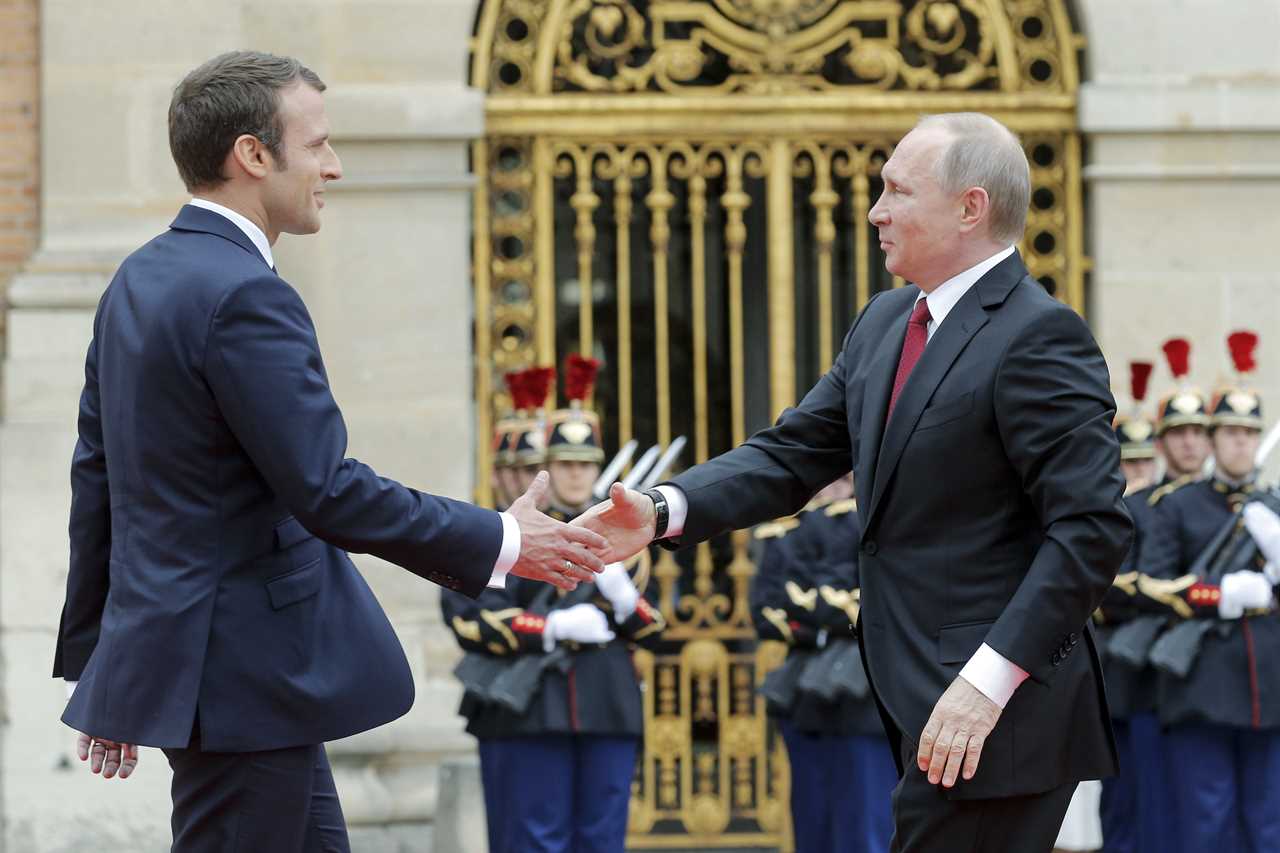
Who knows what they said in private. In public, the two men jointly inaugurated an exhibition dedicated to the visit of Peter the Great to France 300 years earlier. This seized the attention of the French media, who noted that Peter was a reformist, a modernist, a Westernizer who sought to discover “all that was most remarkable about France” and adapt it to the Russian empire. His time in Paris, they stressed — and particularly his conversations with French intellectuals — were greatly to influence his thinking and works. Macron was probably figuring that if that worked once, it might work twice.
The French media — which was not at all insensate to the horrors unfolding in Syria but oddly unwilling to connect them to Russia or to Putin — spent the week of Putin’s visit to Versailles recalling that in 1717, Peter the Great had taken Louis XV, then age seven, in his arms, a formative event in the reign of the young king and the harbinger of the long and deep Franco-Russian friendship that followed. “What’s important to recall about this story,” Macron said, Putin, standing impassively by his side, “which today has lasted three centuries, is this dialogue between France and Russia, which has never ceased. Dialogue between our intellectuals, our cultural figures, who admired each other, and which have endured to this day, nourished by our greatest artists.”
At some point, he mentioned the Minsk accords — he said he would ask Putin to respect them — and called for a return to the Normandy format dialogue on Ukraine. Both points seemed an afterthought. Putin did not take the young Macron in his arms, but the duo were espied together in a golf cart, enjoying the palace gardens.
Whether Macron’s exchanges with Putin were in fact “demanding” is impossible to know. But within a year, his intelligence services had gathered 44 more allegations of chemical weapons usage in Syria and claimed to have substantiated 11 of them with dispositive evidence.
Macron nonetheless felt the Versailles tête-a-tête was such a success that in May 2018 he accepted an invitation from Putin to visit St. Petersburg. And another, to Moscow, to watch the World Cup. Then, having survived the popular uprising that came to be known as the Yellow Vests or Gilets Jaunes rebellion — which was stoked, nurtured, and aggravated by Russia — Macron welcomed Putin to the Fort of Brégançon, the official holiday resort of the president of the French Republic. “Russia is European, very deeply so,” Macron said to the assembled press corps. “We believe in a Europe that goes from Lisbon to Vladivostok.”
It was in August 2019, however, that Macron graduated from naivete to outright obsession. This is when he addressed the annual conference of French Ambassadors. “I know,” he said, “that many of you made your careers working on dossiers whose every aspect fostered a mistrust of Russia.” But that mistrust, Macron argued, was owed to a “series of misunderstandings.” It was time to “rethink the fundamentals.” His goal was to “build a new architecture” with Russia, “based on trust and security in Europe.”
He warned that “actors on both sides,” would try to undermine this. But France must stay firm and work “tirelessly” to rebuild this “agenda of trust.” It would require “constant dialogue with President Putin.” Again, he noted that his audience might be dubious — no doubt, some were on the verge of a stroke — but, he reminded them, he was the president, and they were not.
Upon hearing this, France’s allies in Eastern Europe went berserk. Not only did they see Macron as naïve, which he was, but his words as a profound betrayal that undermined NATO’s coherence and deterrence, which they did.
Then, two months later, days before a NATO summit in London, Macron pronounced NATO “brain dead” in an interview with The Economist. And all hell broke loose.
Something, clearly, is odd about France’s relationship with Russia, which resembles that of a lovelorn mistress who is absolutely certain that one day her beloved will leave his wife and marry her. It involves three distinct threads.
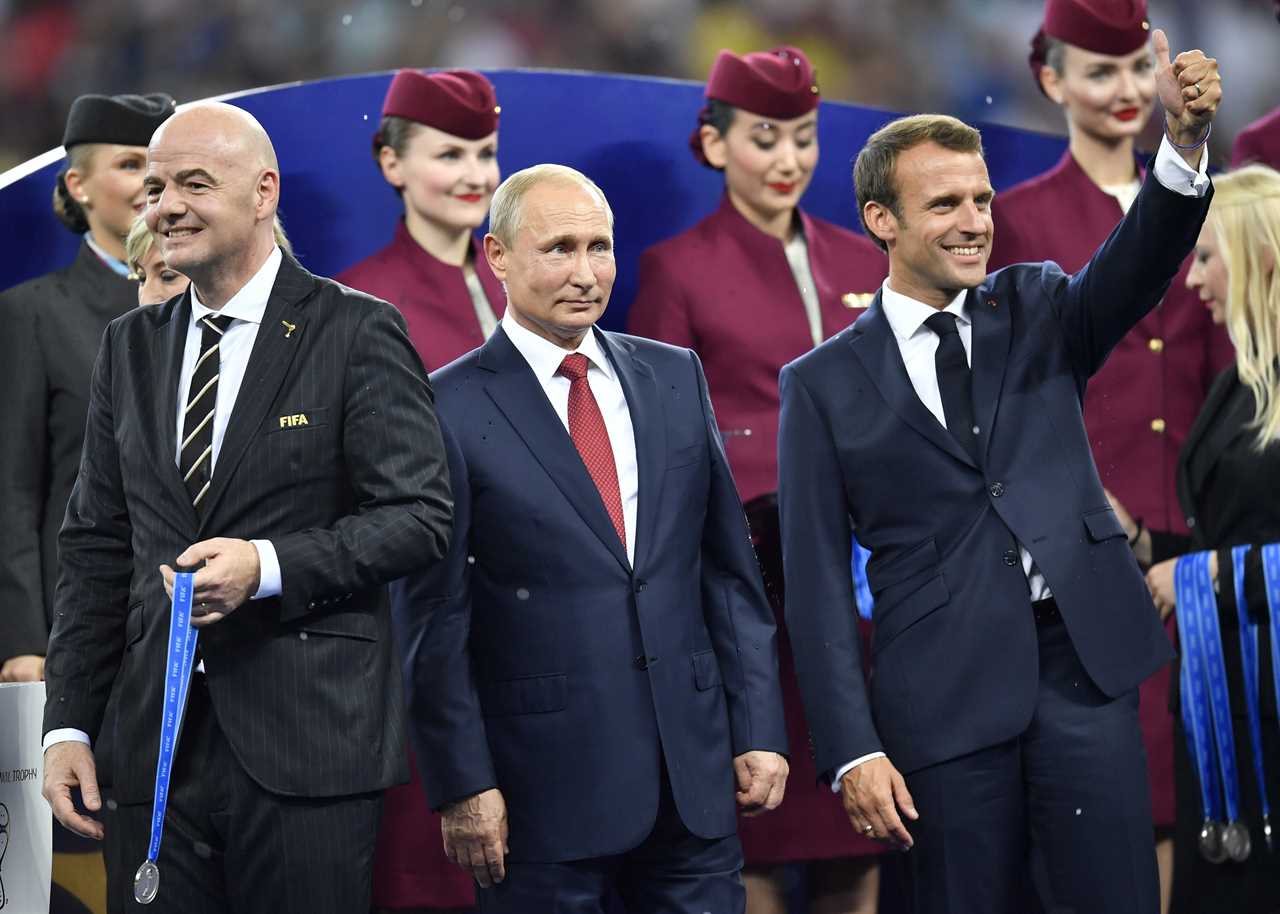
First, there is the far right, whose views have increasingly infiltrated the traditional and respectable right. Le Pen, Zemmour, and scoundrels of their ilk are the heirs of Charles Maurras, the ideologist behind Action Française, a political movement founded in 1899 to defend the “true France” — blood-and-soil France; ultranationalist, reactionary, royalist France; anti-parliament, counter-revolutionary, anti-Semitic, paranoid France. To an extent, fear of Muslims has replaced fear of Jews in Maurrassian political thought. For this sector of the electorate, no threat to France surpasses what it views as a civilizational clash with Islam — that, perhaps, and gay parades. Thanks to Russia’s extensive propaganda efforts in France, the far right has come to see Russia as their ally in the battle against Islam and gay parades alike. Le Pen and Zemmour admire Putin’s authoritarianism and believe him their natural ally. Both have been forced, since the invasion of Ukraine, to walk this back, but there are things you can’t unsay.
Unfortunately, the far left’s views are no improvement. In February 2016, interviewed by France 2 TV, Mélenchon congratulated Putin for his war crimes in Syria. Asked whether he supported Putin’s actions, he replied, “Yes.” His interlocutors informed him that the Russian military had shown no interest in hitting ISIS positions, focusing its efforts instead on opponents of Assad’s regime. Lies and nonsense, Mélenchon insisted. He called for an “international military coalition,” with Russia, “to beat Daesh.”
There was an international military coalition to beat Daesh, another term for ISIS. But since it was led by the United States, and because, as any committed tankie knows, only Americans can be imperialists, Mélenchon wanted no part of it. In 2018, he called for an anti-American Paris-Moscow alliance, then flew to Moscow for talks with the only people who were interested in talking to him: The Stalinist United Communist Party. He’s not only “against confrontation with Russia,” he’s “against sanctions on Russia, as well.” Thus Mélenchon supported the invasion and annexation of Crimea: “The ports of Crimea are vital for Russia’s security,” he said. Russia was merely “taking protective measures against an adventurous putschist power, in which the neo-Nazis have an utterly detestable influence.”
All three of them — Le Pen, Zemmour, and Mélenchon — have been somewhat chastened by Russia’s invasion of Ukraine. You can’t really campaign on a platform of dead bodies, raped women, brutalized children and flattened cities. But clearly, their hearts aren’t in it. “I am on the side of [Ukrainian President Volodymyr] Zelenskyy against Putin,” said Mélenchon grudgingly.
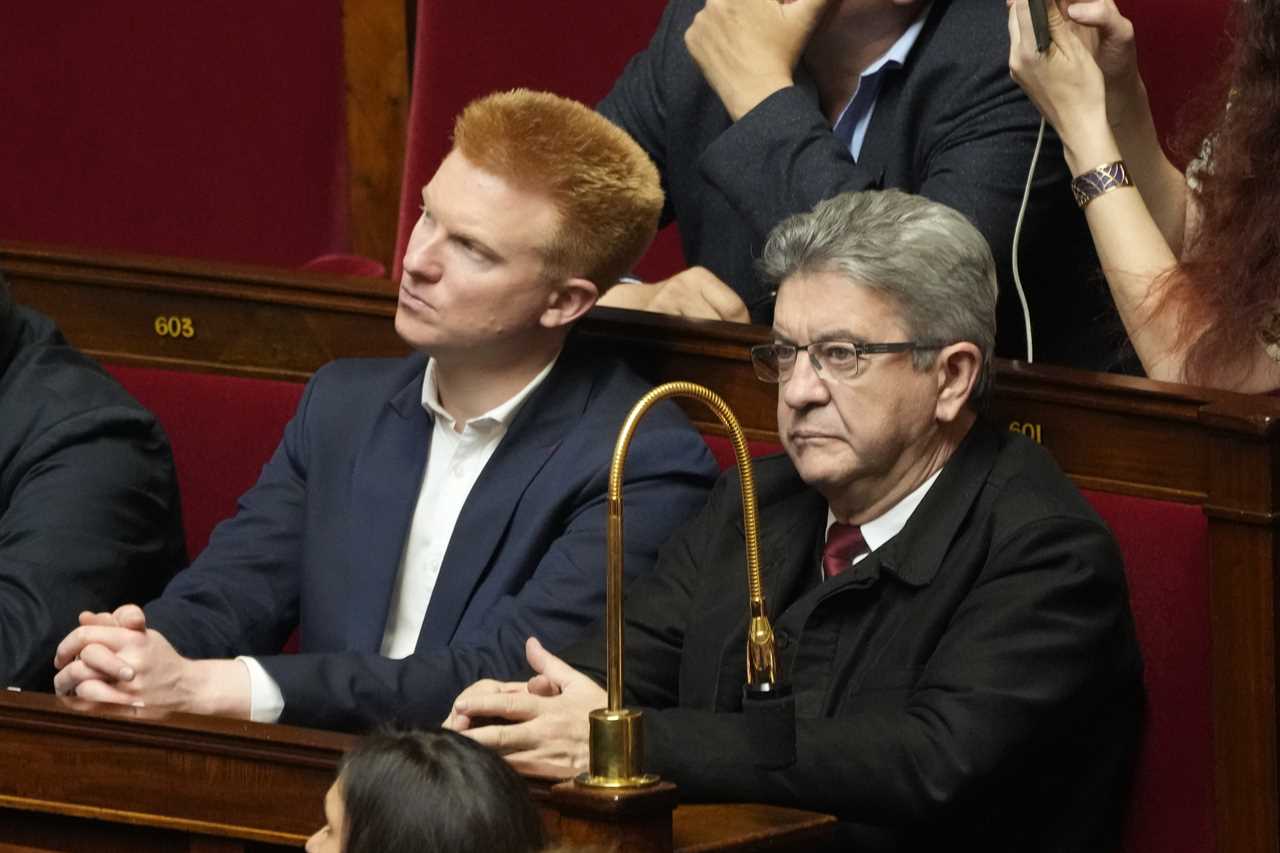
That the far left and far right converge in their views of Russia is not a surprise; this is the well-known phenomenon of the political horseshoe at work. But then there is the last and probably the most important thread in France’s amorous relationship with Russia: Gaullism. Gaullism unites the far left, the far right, and the so-called Gaullo-Mitterandists in suspicion of the Atlantic alliance and hopeless romanticization of a Russia that no longer exists.
The French love affair with Russia goes back at least to the 18th century, when Gallomania was de rigeuer among educated Russians. French was the language of diplomacy, trade, cultural status. French-language editions outsold Russian ones in St. Petersburg bookshops. Between the era of Catherine the Great and Alexander the First, French was the second and then the native language of the Russian nobility.
For their part, the French nobility wrote of their real and imaginary journeys to Russia; in the 1780s, the French ambassador to St Petersburg, Count Segur, acquired a taste for Russian noblewomen, and charged with improving Franco-Russian relations, he edited Catherine the Great’s various plans for new educational institutions. Following a visit to Russia in the winter of 1774, Denis Diderot reported that no nation in Europe took to French culture, language, and mores so quickly. What’s more, he wrote, Russia’s fashionable dress and splendid feasts were the equal of London or Paris.
Russians were fascinated with French glitz. The French were fascinated with Russia’s fascination, confirming, as it did, Russia’s suitability for France’s mission civilisatrice, and they were not indifferent to Russia’s sheer size: As Europe’s only republic, France for the most part was little loved, ostracized by its neighbors for its lack of a monarch.
What began as cultural enamorment acquired, in the 19th century, diplomatic urgency. Rising German power and traditional distrust of Britain led French diplomats to hold a Franco-Russian alliance as their highest aspiration. Such an alliance would not merely endow France with a great land empire ally to serve as a bulwark against Germany, but a symbol of French great power status. Well before the rise of the United States as a global power, French was overcome by the worry that it was losing its great power status. (The most enduring aspect of the French character is a certainty that its best days are behind it).
The rapprochement contributed to the massive influx of French capital into Russia: From 1888, France provided Russia with cheap loans, floated on the Paris Bourse, essential for rebuilding the backward Russian military; these also financed the railways that Russia’s strategic planners foolishly imagined would bring troops to the German front. Throughout France, republican politicians organized lavish feasts in Russia’s honor; hundreds of thousands turned out to see visiting Russian officials; consumers eagerly acquired Russian books and posters to commemorate the alliance; Frenchmen wrote songs and poems celebrating the newfound Franco-Russian amity.
In the past century, children’s books penned by the Russian-born Comtesse de Ségur probably did more to shape the minds of French children than any number of Russian agents, but let us not forget that Russian agents, too, did plenty to shape those minds. Charles de Gaulle’s administration, we now know from archives, especially Mitrokhan’s, was riddled with KGB operatives. So was Mitterand’s. So was Pompidou’s. Throughout the Cold War, Russian active measures targeted French public opinion.
If this is the context in which Gaullist policy emerged, it is also important to remember the context in which it did not emerge. Unlike Germany or Eastern Europe, France had never been invaded or occupied by the Russian empire or the Soviet Union. French historical memory has no parallel to the traumas experienced by Poland and the Baltic states. France did not fall behind the Iron Curtain. The French did not experience the deportations or the gulags. The French elites’ proximity to their Russian counterparts probably taught them too, to some extent, disdain for the Russian and Eastern European masses, whose experiences they tended to discount as exaggeration — a tendency we see to this day.
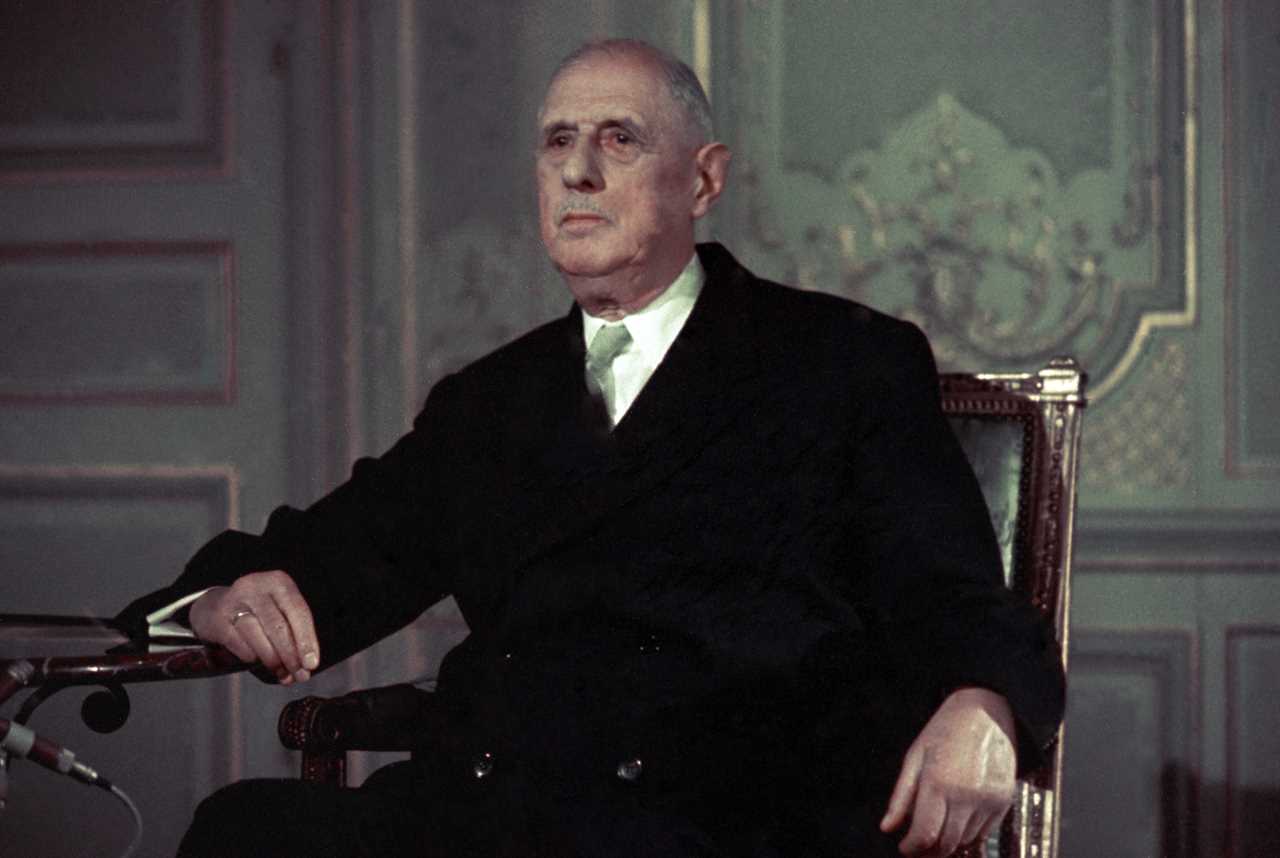
France most certainly did, however, experience German invasion and occupation. It experienced, as well, war after war with Britain, competition with Britain in the colonial world, and the humiliating loss of its empire as a triumphant Anglo-American alliance replaced its position on the global stage. De Gaulle did not truly distinguish between the United States and the United Kingdom; just as de Gaulle referred always to “Russia,” not the then-USSR; he referred to “the Anglo-Saxons” in his dealings with the British and Americans. He believed — correctly — that the United States and Britain viewed France as a lesser partner and he found this intolerable; he never recovered from the insult of France’s exclusion from the Yalta conference.
And then there is France’s deep fear of the United States. Psychologically, the roots of this fear are not hard to discern. America, especially in conjunction with its Anglophone allies, is powerful, and Anglophone countries don’t trust France, or treat France the way they do one another. The Five Eyes of western intelligence sharing are an Anglophone club (Canadians are only Francophone under duress). If France is excluded from this club, it is natural. People tend to trust people who speak their language.
But it is deeper than this. Franco-British rivalry may be all but forgotten now to Americans, but it certainly isn’t forgotten in France or Britain. Centuries of warfare and imperial competition leave scars, even if their origins become dim and unconscious. The fall of France in the Second World War was a betrayal from which the Anglophone world may have recovered, but it is a shame from which France has not. It is a straight line from that clubbiness to AUKUS, the trilateral security pact between Australia, the UK and U.S. When that trio signed the pact and cut a lucrative nuclear submarine deal at France’s expense — without so much doing France the courtesy of letting them know before they read it in the headlines — they tore the scar off what felt, to the French, like a sucking chest wound.
France was once a mighty empire. It is no longer a mighty empire. The empire is a phantom limb, as it is for every post-imperial power.
This is why France has never had a president inclined to view Russia in the harsh light of reality. Sarkozy, it is true, was an Atlanticist who undertook France’s return to the integrated military command of NATO. But he didn’t push back against the invasion of Georgia and signed the first major arms deal with Moscow since the Second World War — over the objections of Poland, Ukraine, the Baltics and Georgia.
The Gaullist reflex is what animates Macron (and the cohort of flunkies trailing his wake), even if only unconsciously and instinctively. Macron’s insistence that NATO was “brain dead,” and needed a new security architecture that included Russia, was very much part of this tradition. Trump’s presidency made this sound even more plausible to the French. All of the candidates have converged on the idea that somehow, Russia can be made part of Europe, no matter what the evidence suggests.
France has been profoundly shocked by Russia’s invasion of Ukraine and is at last behaving as if it grasps the threat Russia poses to Europe. French nuclear-launch capable submarines have been at sea for the first time in decades. France has sent troops to fortify NATO’s borders. Among civilians in the Ministry of the Armed Forces and at the Quai d’Orsay, a generation of devoted Atlanticists — to whom Macron’s warning was addressed in August 2019 — are loudly saying, “We told you so.”
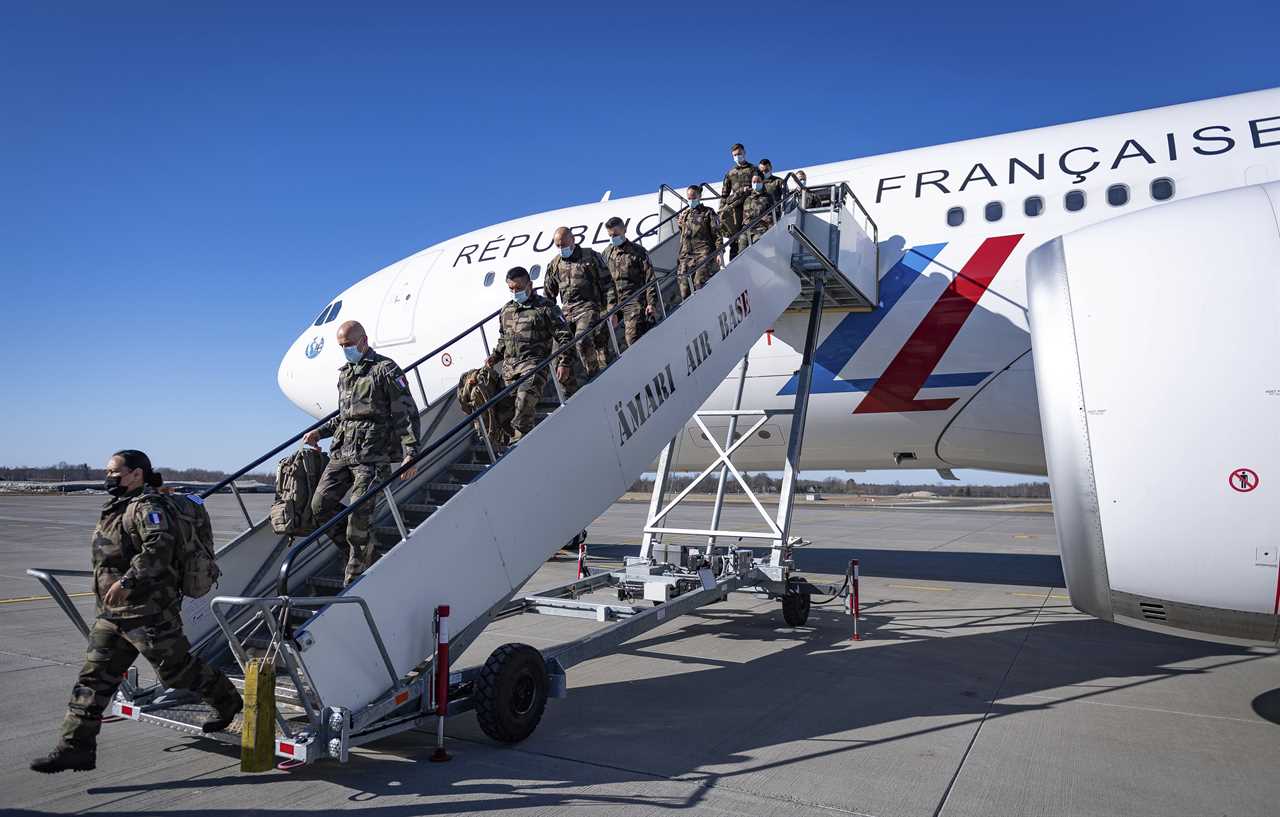
The idea that Macron will charm Putin into becoming a good European is probably dead. For good. But Macron is an agile politician who will translate his plan into something more palatable: He will probably play the good European cop to the U.S bad cop, or the designated Putin interlocutor. This is not ideal, but it is not awful. Zelenskyy has already realized he can use Macron for this purpose, and regularly delivers messages to Putin via Macron. Since Putin is surrounded by yes-men, Macron may be able to tell him truths that his generals won’t disclose.
But Macron is unquestionably the least Russophile candidate in the race. If, God forbid, through the kind of accident that can happen in democracies — high abstention rates, a moment of populist petulance, a Russian-engineered last-minute surprise — one of his rivals wins the presidency, the Atlantic alliance is in deep trouble. None of his rivals can be trusted. Their enthusiasm for Putin is not a bluff and it is not a game.
Several days ago, the Kyiv Post’s exasperated defense editor Illia Ponomarenko, astonished that Macron had yet again dignified Putin with a pointless phone call, asked on Twitter, “Are you guys impressed with his outstanding peace-enforcing effort and his leadership against the biggest aggression in Europe since World War II? Ready to vote for him again?”
Within minutes, thousands of real and amateur experts on French politics replied. I was one of them. We all said the same thing. Trust me. You don’t want to see the alternative.
----------------------------------------
By: Claire Berlinski
Title: Opinion | Macron Just Can’t Quit Putin. But He’s Not the Only One.
Sourced From: www.politico.com/news/magazine/2022/04/09/macron-cant-quit-putin-french-election-00023781
Published Date: Sat, 09 Apr 2022 06:00:00 EST
Did you miss our previous article...
https://consumernewsnetwork.com/politics-us/joe-bidens-presidency-of-the-cardboard-box






